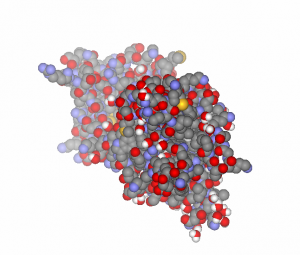The views expressed in our content reflect individual perspectives and do not represent the authoritative views of the Baha'i Faith.
Make Me a Hollow Reed –The Benefits of Intermittent Fasting
Religion must agree with science, so that science shall sustain religion and religion explain science. (Abdu’l-Baha, Divine Philosophy, p. 26)
Journalists have called the Baha’i Faith “the reasonable religion” and “a logical, science-friendly belief system,” because the Baha’i teachings focus so strongly on the essential harmony and agreement of scientific fact and spiritual faith. But it’s taken science a while to catch up with the Baha’i Fast.

Every year, during the nineteen days before the Vernal Equinox, Baha’is all around the world voluntarily go without food and drink during the daylight hours. Baha’is have fasted this way since the Faith’s beginnings in the 19th Century. Now, however, scientific research is showing that The Baha’i Fast — meant to symbolize detachment from the physical world, develop empathy for the poor and hungry and engender the development and growth of the soul – may have significant health and biological benefits, too.
Human beings, like most higher-order mammals, evolved as hunters and gatherers. Our ancestors spent hours each day searching for food. But food wasn’t always abundant, and sometimes it wasn’t available at all. So they would fast, involuntarily — and then, when they found food, they would feast.
As a result, humans gradually evolved a genetic code, a genotype, which allowed their bodies to thrive by adapting to these cycles of feast, fasting and famine. We still carry that genetic code, even though most cultures in the developed world now eat regularly, consuming two or three meals each day, plus snacks and desserts, without fail or respite.
But recent scientific research, including many animal studies and some human trials, has begun to demonstrate the health benefits of various intermittent patterns of fasting and voluntary abstinence. Because intermittent fasting replicates the feast-or-famine dietary patterns of our ancestors, many researchers believe emptying the human digestive system and allowing it to self-cleanse and purify without the constant presence of food confers lifelong health advantages.
The evidence is mounting. A repeated, regular pattern of calorie restriction, where people reduce their normal routine intake of nutrients by intermittent fasting, has repeatedly been shown to deliver some very significant benefits. Intermittent fasting reduces risk factors for multiple chronic diseases in animals and humans, and increases life span dramatically in several animal studies:
Religions have long maintained that fasting is good for the soul, but its bodily benefits were not widely recognized until the early 1900s, when doctors began recommending it to treat various disorders—such as diabetes, obesity and epilepsy.
Related research on calorie restriction took off in the 1930s, after Cornell University nutritionist Clive McCay discovered that rats subjected to stringent daily dieting from an early age lived longer and were less likely to develop cancer and other diseases as they aged, compared with animals that ate at will. Research on calorie restriction and periodic fasting intersected in 1945, when University of Chicago scientists reported that alternate-day feeding extended the life span of rats as much as daily dieting in McCay’s earlier experiments. Moreover, intermittent fasting “seems to delay the development of the disorders that lead to death,” the Chicago researchers wrote. (David Stipp, “How Intermittent Fasting Might Help You Live a Longer and Healthier Life,” Scientific American, January 2013)
No large-scale, double-blind human studies on intermittent or seasonal fasting have been completed yet, but anecdotal and statistical evidence from populations that regularly fast shows a considerable extension of lifespan, coupled with a reduction of chronic physical and mental illnesses common in old age. And the studies completed so far all show that “intermittent fasting acts in part as a form of mild stress that continually revs up cellular defenses against molecular damage,” according to Scientific American:

Occasional fasting increases the levels of “chaperone proteins,” which prevent the incorrect assembly of other molecules in the cell. Additionally, fasting mice have higher levels of brain-derived neurotrophic factor (BDNF), a protein that prevents stressed neurons from dying. Low levels of BDNF have been linked to everything from depression to Alzheimer’s, although it is still unclear whether these findings reflect cause and effect. Fasting also ramps up autophagy, a kind of garbage-disposal system in cells that gets rid of damaged molecules, including ones that have been previously tied to Alzheimer’s, Parkinson’s and other neurological diseases.
Researchers are also discovering that fasting has a direct link to the prevention of cancer. In animal studies, fasting lowers the rate of cell proliferation, which repairs existing cells rather than spurring the runaway cell growth that leads to cancerous tumor formation.
All of this increasing scientific evidence helps explain why groups of people who fast regularly – Buddhists, Mormons, Baha’is – tend to live longer and healthier lives than those in the general population. The Baha’i teachings emphasize the spiritual benefits of fasting, and Baha’is don’t fast simply for dietary or health-related reasons. Increasingly, however, it looks like the two go hand-in-hand.
“O God! as I am fasting from the appetites of the body and not occupied with eating and drinking, even so purify and make holy my heart and my life from aught else save Thy Love, and protect and preserve my soul from self-passions and animal traits. Thus may the spirit associate with the Fragrances of Holiness and fast from everything else save Thy mention.” (Abdu’l-Baha: Star of the West, Vol. IV, No.18, p. 305)
You May Also Like
Comments

















Thanks!